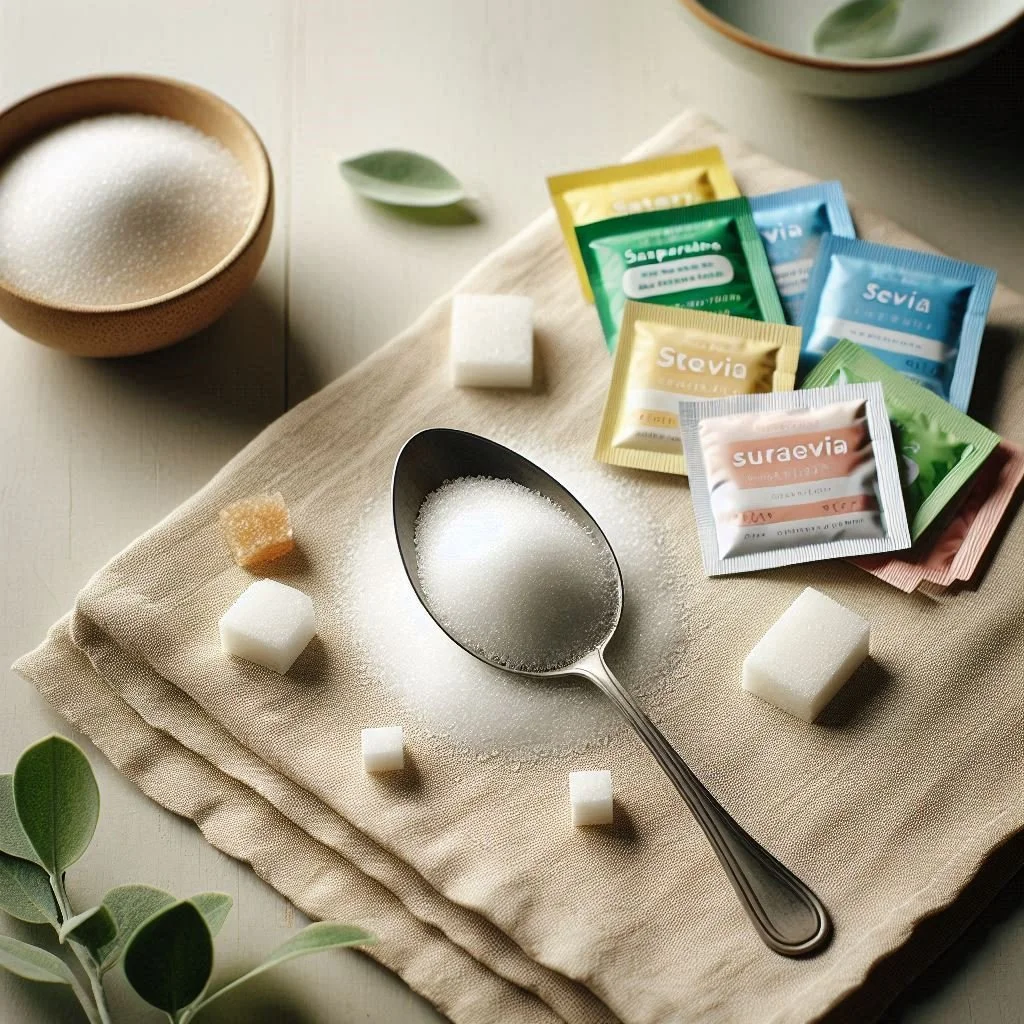Are Artificial Sweeteners and Sugar Alternatives Really Better for Us?
In a world where “sugar-free” is often seen as synonymous with “healthy,” it’s easy to assume that artificial sweeteners and sugar substitutes like stevia are a better choice. Many people switch to these alternatives in an effort to cut calories, balance blood sugar, or support weight loss, however, when we look more closely at what happens in the body, the story isn’t so simple, and these sweeteners may not be the health-friendly solution they appear to be.
Artificial sweeteners such as aspartame, sucralose, and saccharin are designed to provide sweetness without calories (think diet drinks like diet coke). While this sounds appealing in theory, research shows that these synthetic compounds can disrupt important physiological processes, particularly in the gut and brain. Artificial sweeteners alter the gut microbiome - the healthy bacteria that supports digestion, immunity, and even mental health. Studies have found that they can reduce beneficial bacteria and promote dysbiosis, which may contribute to inflammation, metabolic dysfunction, and insulin resistance over time. Ironically, instead of helping with weight or blood sugar control, they can sometimes make both worse.
One reason this happens is because artificial sweeteners confuse the body’s natural relationship with sweetness. When we taste something sweet, our brain and digestive system prepare for a rise in blood sugar. But when no actual sugar arrives, it can throw off the body’s hormonal and metabolic responses, sometimes leading to increased hunger and cravings later in the day. Over time, this can undermine appetite regulation and make it harder to maintain a balanced diet.
Natural sugar alternatives like stevia, monk fruit, and erythritol are often marketed as “healthy” options. While they are less processed and don’t raise blood sugar in the same way as table sugar, they’re not without downsides. Stevia, for example, may still stimulate insulin release in some individuals, and its intense sweetness can keep the palate accustomed to overly sweet tastes — making naturally sweet foods like fruit seem less satisfying. Erythritol, a common ingredient in “keto-friendly” and “low-carb” products, has been linked in some studies to potential cardiovascular risk and digestive discomfort, particularly in large amounts.
The deeper issue is that relying on any kind of sweetener — natural or artificial — continues to feed our dependence on sweetness. This can prevent us from retraining our taste buds and metabolism toward balance. True healing happens when we reduce our exposure to overly sweet foods altogether and learn to appreciate the natural flavors of whole foods.
A better approach to managing sugar intake is to focus on stabilising blood sugar through balanced meals that include protein, healthy fats, and fibre. These nutrients slow glucose absorption and help keep energy levels and cravings steady. If you do want something sweet, choose small amounts of natural, minimally processed sugars like honey or fruit, and enjoy them mindfully.
Ultimately, the goal isn’t to replace sugar with something else — it’s to reconnect with the body’s natural cues for hunger, satisfaction, and energy. When we step away from artificial sweetness, we begin to rediscover what real nourishment feels like.

